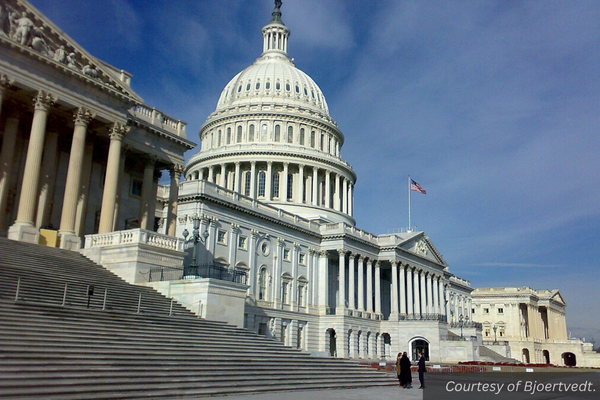Do you ever wonder, “What are my elected officials doing?” Every two years or maybe four years we hear a lot from our elected officials. They come around the whole state and pitch three or four things that they feel the voters would like and then ask for your vote. This article is designed to let you know what your congresswoman and senators have been working on and how effective they are.
As many of you know, bills presented in Congress that originate in the House of Representatives and pass, go on to the Senate for a vote. The reverse is true of bills that originate in the Senate. Having both houses of Congress approve bills lets the American people know a bill is considered worthy to become law.
Some of the bills that have been passed by the House of Representatives that were sponsored by our congresswoman, Celeste Maloy, originated because of her visiting with constituents in southern Utah.
One of the recent bills Rep. Maloy introduced was called the SEE Act.
This was a veterans bill that Rep. Maloy sponsored which came about because veterans living in southern Utah told Maloy that they had difficulty traveling to Salt Lake City for eye and dental care that was provided by the Veterans Administration.
Because the VA prohibits some services, such as eye glass fittings, to be provided by private eye doctors, the VA has to reimburse veterans for travel to Salt Lake in order to get those services. Maloy argued that the money the VA spent to get veterans to a VA facility was expensive. It would be cheaper for the VA to reimburse veterans to receive care from private, local doctors in St. George or Cedar City than to drive to Salt Lake.
Rep. Maloy has also recently reintroduced the FREE Act. The act aims to ease the permitting process at bureaucratic federal agencies by creating a “permit by rule” system where permit applications are automatically approved if applicants can show they have complied with all the requirements previously set by the agency.
Rep. Maloy had introduced seventeen bills in the House during her first year in office. Some of those bills were not deliberated by the Congress of 2023-2024, and will be reintroduced.
Senator Mike Lee chairs the Senate committee on the Environmental and Public Works Committee and has been supportive of many of these bills.
Senator John Curtis is just starting his first years in the Senate and seems to be holding back a bit while he gets his feet wet. He is supportive and cosponsored the FREE Act bill and seems to be willing to help with getting some of the other bills passed but is not sponsoring much on his own yet.
According to a press release from Congresswoman Maloy’s office, she is “aiming to curb the ability of a president to declare new national monuments as a part of the Antiquities Act. She has introduced a congressional bill that would strip presidential authority to designate national monuments.” This bill is called the “Ending Presidential Overreach on Public Lands Act” and has just recently been introduced. No action has yet been taken on this bill. It is sponsored by Maloy and Nevada Congressman Mark Amodei.
“Congress, not the executive branch, has jurisdiction to make decisions on public lands,” said Maloy in a joint-statement with Congressman Amodei released Thursday, January 23.
“Congress trusted Presidents with a narrow authority to declare national monuments in the Antiquities Act,” read the joint statement. “Unfortunately, Presidents have continued to abuse that narrow authority to designate millions of acres of land in Utah and across the West without proper Congressional oversight. My bill aims to rebalance the powers between Congress and the executive branch and restore transparency and accountability to these designations.”
Congressional delegations spent time at a retreat in Florida recently where they listened to Vice President JD Vance speak to them on “unity” and reminded them what a blessing it was to serve their country in the capacity they are doing.
A lot of the Senate’s time has been spent in hearings and approving President Trump’s picks for cabinet posts.
– The Byway

